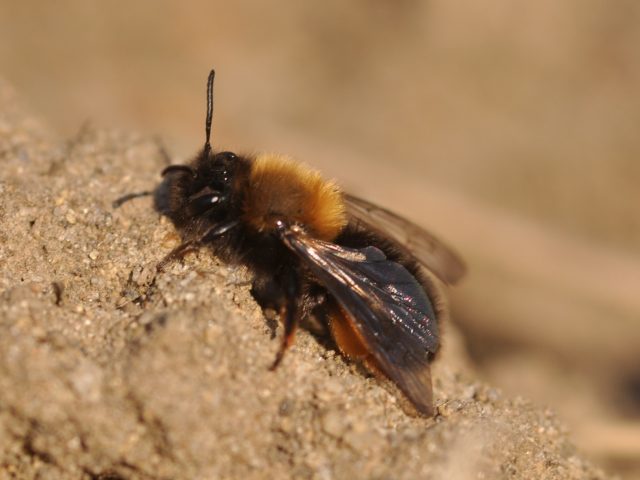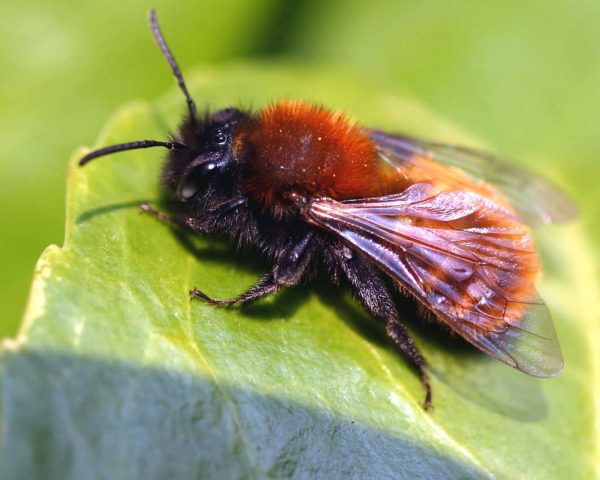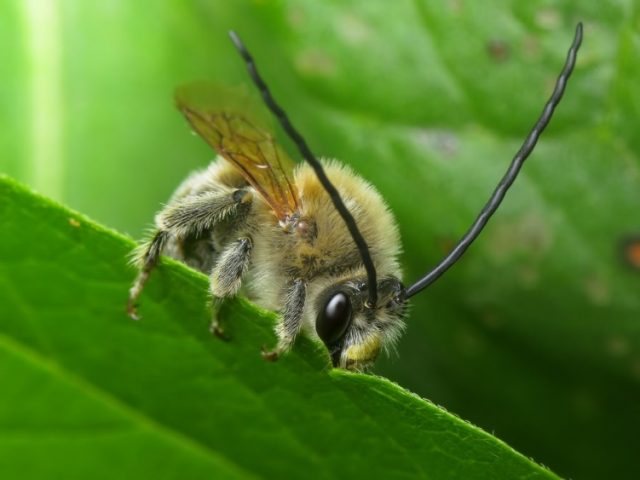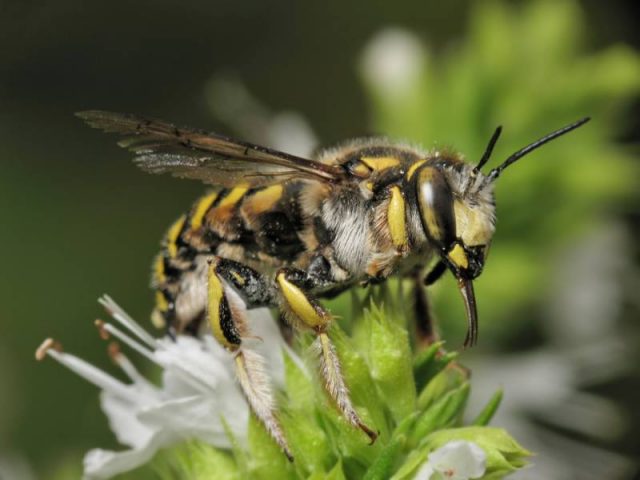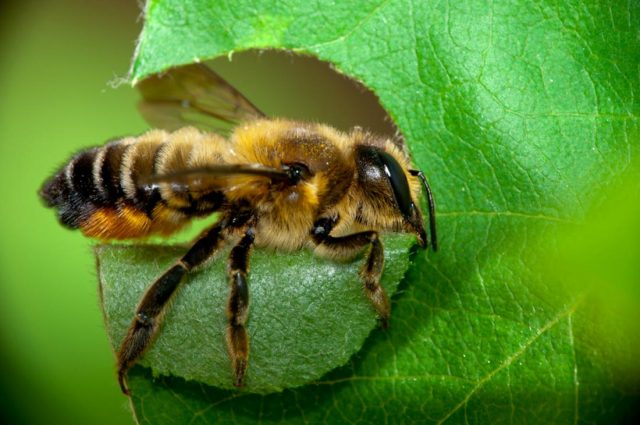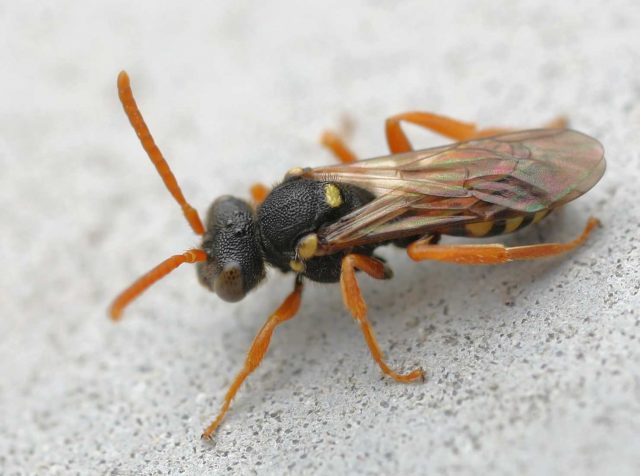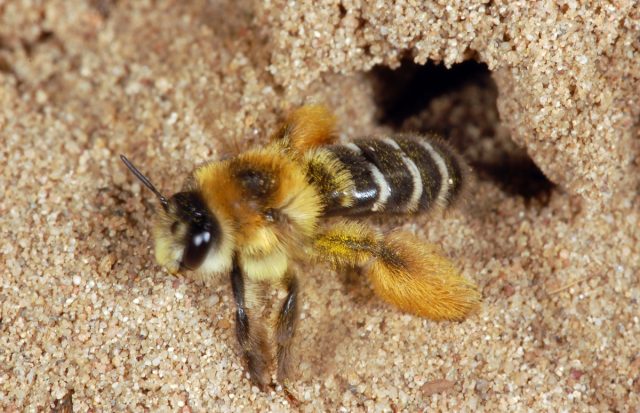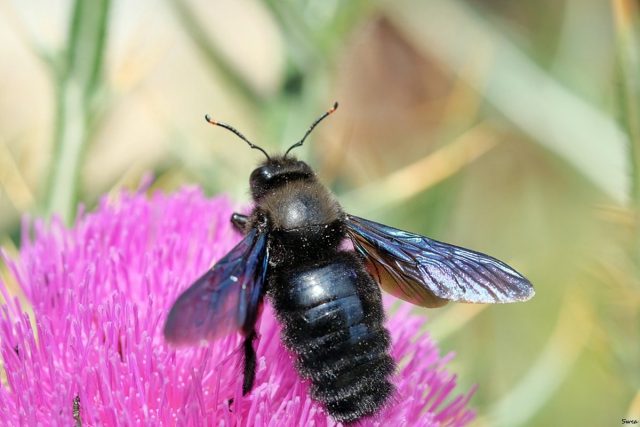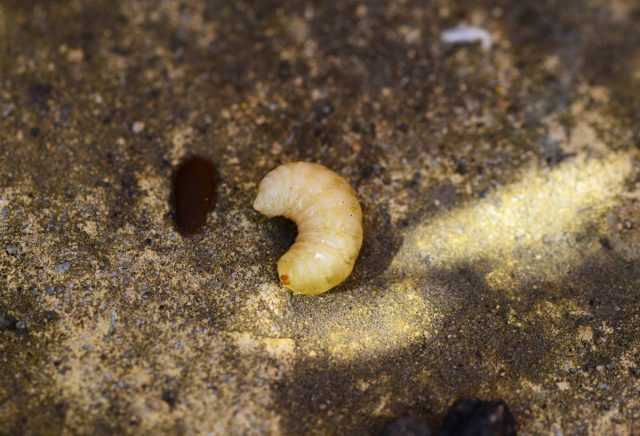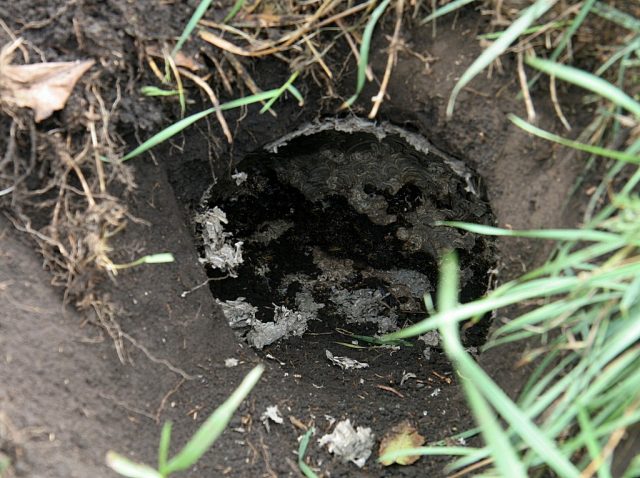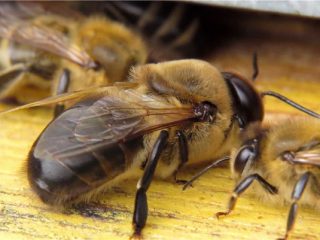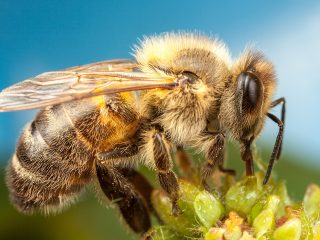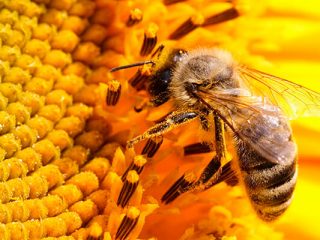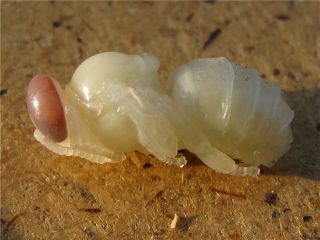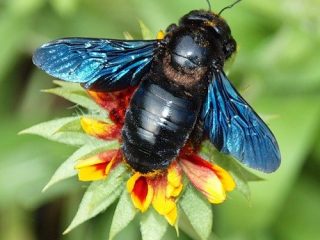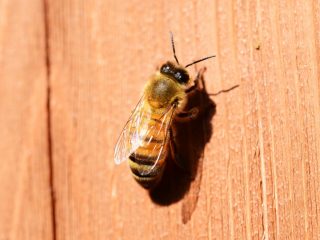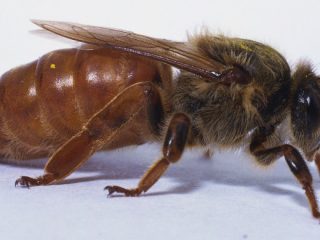Content
Earth bees are similar to common bees, but have a small population that prefers solitude in the wild. Forced to coexist with a person due to the growth of urbanization.
Earth bees: photo + description
As the name suggests, it should be borne in mind that earth bees prefer to spend their time in the ground. In garden plots, they are taken out, as they can harm plantings, but insects are included in the Red Book.
Varieties
Bees are divided into species depending on color and lifestyle. They are united by their habitat: they prefer soil or shrubs, rather than trees.
Andrena-Clarkella is a common species of earth bees, characterized by a variety of colors. There are black, blue and orange individuals, ranging in size from 8 to 17 mm, with pubescence on the head and back.
Andrena Magna, habitat - the Black Sea coast, listed in the Red Book. The length of the bee is 15-18 mm, it is black with purple wings, the back is yellow. There are thick hairs on the head and body.
The long-wattled bee, distributed from Europe to Kazakhstan, has a distinctive feature - it is the ability of two females to coexist simultaneously in the nest. Individuals of medium size, grayish-yellow color with long antennae.
Haliktsfekodes, ubiquitous, similar in appearance to bees, but reddish or greenish in color. The size ranges from 5 to 15 mm.
Woolly bees are small, well-fed bees that do not dig holes, but prefer to use ready-made ones. They are brown in color with yellow spots. A distinctive feature is the aggression of males towards other insects.
Leaf cutter bees are loners who equip a nest using leaf plates. They have strong jaws but are unable to produce honey. Are under the protection of the Red Book of the Stavropol Territory.
Nomada: outwardly similar to honey bees, but practically not pubescent, do not have a pollen collection apparatus. Their second name is cuckoo bees: they do not build nests, but breed in other people's nests, borrowing supplies.
Mellitids are a species of earth bees similar to honeybees. Nectar is collected only from Asteraceae flora and legumes.
The carpenter bee has a distinctive feature - it is the ability to buzz loudly. The insect is large in size, has blue wings with purple tints and dark blue eyes. Prefers solitary existence.
Appearance
More than 1500 subspecies are distinguished. Many of them are monoviltine: capable of producing only one offspring per year. Some varieties hatch 2 generations in a given period of time.
The difference between earth bees:
- small size: females 1.8-2 cm, males a few millimeters smaller;
- pubescence: a thick fur cover allows the bee to survive in an earthen nest (it is colder in it than in a hive);
- color: insect wings with purple blotches, the head is often darker shades (black or brown), body color is varied: there are individuals of green, orange or black shades.
The most important and fundamental difference is the desire to dig holes and build nests there.
Habitat
The dwelling place of the underground bee depends on the species.The habitat is ubiquitous, with the exception of Oceania and South America.
They are able to settle not only in the wild, but also in garden plots. They often function as pollinators and do no harm to the garden. With non-interference in their lives, they are peaceful.
Do bees live in earthen burrows
Bees in the ground do not create numerous colonies: certain species are loners, others prefer chamber life.
The passage dug by an insect is no more than 80 cm in length, but it is a network of semicircular tunnels, at the end of which there are “cells”. They are intended for breeding and filling with honey.
The colony is founded by the uterus, which forms the future dwelling from the mink abandoned by the rodent.
To do this, she needs to do the following:
- build a hole from loose earth, moistening the soil with saliva;
- cover the "floor" of the hole with sheet plates;
- lay eggs;
- independently provide the larvae with nutrients until the offspring can independently extract them.
Such nectar in an earthen hive is preserved so that it does not lose its taste and healing qualities.
Breeding features
After arranging the nest, the uterus equips wax chambers where it lays eggs. Some species of ground bees add herbal fibers and shredded leaves to the cells.
When the laid larva begins to grow, the uterus enlarges the chamber so that the offspring can develop. As young individuals grow older, the uterus dies. This is a characteristic trait of all earth bees. The female of the Galiktsfedox species is able to adapt to frost and other bad weather conditions.
The younger generation continues to develop and harvest honey, dig holes and guard their homes.
How to get honey from earth bees
The life of the uterus is short, as she seeks to do everything before the end of the year. Females bred in the last months of summer, as they mature, will be engaged in the creation of new swarms and a supply of food.
Honey earth bees in the following steps:
- collecting nectar from flowers and plants;
- processing and laying of material in honeycombs;
- sealing the honeycomb for the final maturation of honey.
It is possible to get a healing substance from a burrow, but it is fraught with a number of obstacles: inconvenient location of honeycombs, active resistance of bees.
Before the beginning of the collection, insects are smoked out of the tunnels with smoke, and then the burrow is destroyed. This method is barbaric: without a hive, earth bees are left without a home and supplies, so there is a high risk of their death.
Why are earth bees dangerous?
Despite the benefits of being close to these insect representatives, they prefer not to leave them in the garden.
This is due to the fact that, unlike honey-bearing counterparts, earthen individuals have unpredictable behavior and can be regarded as an attack approaching their home.
In large numbers, the swarm leaves unsightly holes, spoiling the landscape design, interferes with the care of plants, and gnaws at the leaf plates.
They focus on carrots, celery, dill and onions. The underground bees are also able to drink nectar from cucumbers.
A good reason to get rid of ground bees in an area is the high risk of being bitten.
How to get rid of ground bees
There are various methods of cleaning the site from insects that are safe for both humans and plants.
Precautions
The optimal time for the procedure is before sunrise or after sunset, when all individuals return to the hive for the night.
Before fighting with earth bees, all strangers are removed from the site and put on a protective suit. A mask, rubberized gloves and thick clothing are required.
It is recommended to check for an allergic reaction to the poison before the procedure.
Several ways to remove earth bees from the site
The safest method is to invite a dedicated team. It will be necessary to indicate where the bees live in the ground and leave the site. The workers will move the hive to the forest, or use specialized drugs that are not available for sale to people.
Common ways to get rid of ground bees:
- Pouring a burrow of boiling water: you need to prepare 10-15 liters of liquid and pour it into the tunnel. This will lead to the death of insects.
- Treatment with disinfestants: in case of an unsuccessful attempt to get rid of, insects will purposefully attack people, so the use of funds gives 100% result. Common drugs are Get, Delta Zone.
- Digging the soil: Shallow burrows can be destroyed by loosening the soil. In the case of a deeply hidden hive, there is a high risk of surviving insects that will attack a person.
One of the natural ways to get rid of ground bees is to plant a lavender bush. The smell of the plant is very unpleasant for insects that prefer to settle further away from it.
Preventive work
To avoid being bitten by an earthen bee, it is recommended to work in the area in closed clothing. You should not actively wave your arms, shout loudly.
Abundantly flowering and smelling plants are a beacon for earth bees, so it is recommended to refuse them.
To prevent the swarm from returning, it is recommended to plant lemon balm bushes around the perimeter of the garden.
First aid for bites
If a bee attack is successful, medical attention should be given to the victim. The presence of an allergic reaction is the reason for an immediate appeal to a medical institution.
Assisting at home:
- the wound is examined and the sting is removed;
- cold is applied to the site of the bite to combat swelling and pain;
- the affected area is treated with Prednisolone or garlic, onions.
If possible, it is recommended to make a lotion from ammonia diluted in cold boiled water in proportions 1: 5.
The use of antihistamines is mandatory: Suprastin, Zyrtec or Diazolin.
Difficulty breathing, swelling of the face and throat, and rapid heartbeat are symptoms that require qualified assistance. The victim takes an antihistamine and is immediately sent to the hospital.
Conclusion
Earth bees are insects that bring benefits to the ecosystem, but their presence in the garden is a threat to humans. Peaceful coexistence is possible, but there is no guarantee that the insect will not attack. Timely disposal of bees and prevention of their appearance is a guarantee of the preservation of the site and the tranquility of the gardener.
